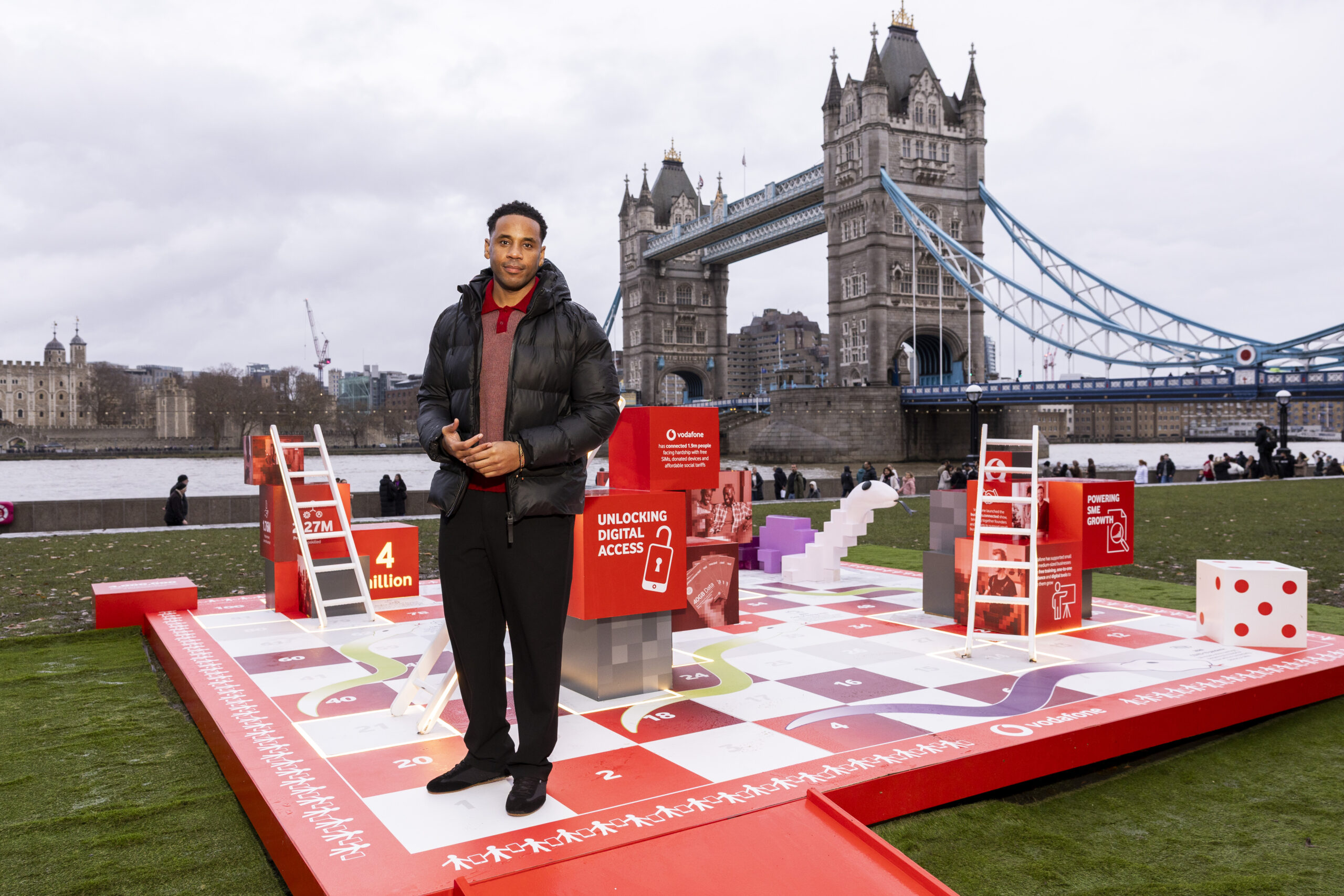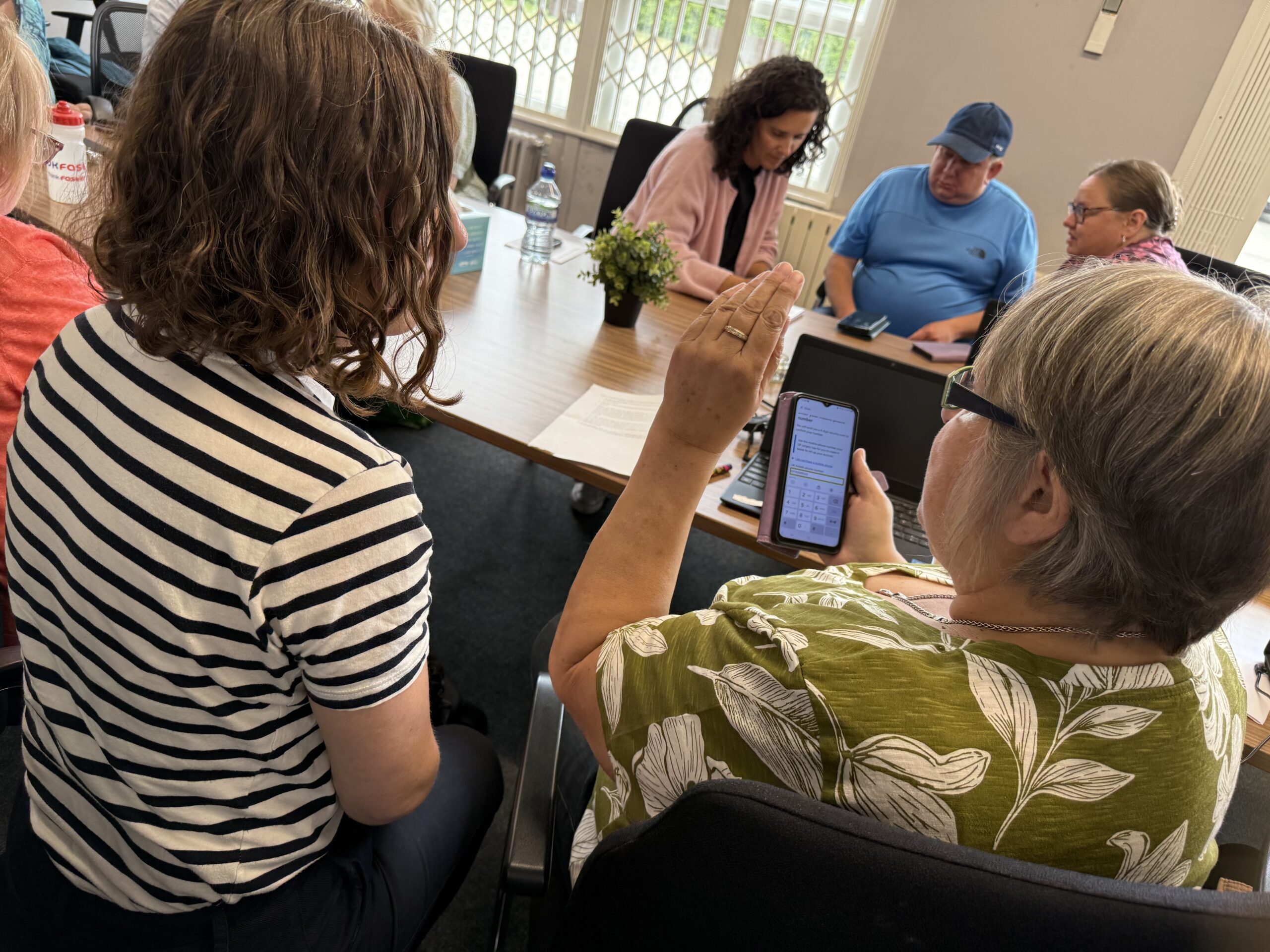In this Viewpoint, Nicki Lyons, Chief Corporate Affairs and Sustainability Officer at Vodafone UK, explores why the digital divide must continue to be addressed collaboratively, and why it requires a flexible long-term approach. She shares how – one year on from its expanded everyone.connected strategy and the launch of its social broadband tariff – Vodafone UK is taking measures to ensure it stays close to the ever-evolving causes of the digital divide, and crucially, the experiences of those who fall on the wrong side of it.
Being disconnected in 2023 has different implications for people than it did even just a year ago. In today’s world where we are so reliant on technology and connectivity, being without connection impacts people’s lives on a daily basis. Sadly, there still isn’t equal access to connectivity, digital skills or devices for everyone.
In the UK alone, around 2 million households don’t currently have access to the internet and 10 million adults lack the most basic digital skills they need in day-to-day life.
We know there are many reasons why people become digitally excluded. For some, it’s a lack of the necessary skills required to use connectivity or tech. This isn’t just an issue that’s limited to the elderly or those who have less experience using certain devices or apps, technology is moving at such a pace that even people who consider themselves “tech savvy” in many areas, may feel left behind elsewhere.
For other people, they are digitally excluded due to a lack of access to equipment like a mobile phone, which can be due to difficult financial situations, something that has been intensified even more by the cost-of-living crisis. Some are unable to set up a broadband connection because they don’t have a permanent address.
In addition to the many causes, we know that the implications of being on the wrong side of the digital divide are just as varied. It can be difficult, frustrating, or even impossible to complete everyday tasks without access to a connection.
Imagine trying to pay a bill, find a location, make a medical appointment, or even park your car, without access to the apps or websites that make these tasks simple and quick to do.
We’ve all experienced being asked to download a new app and not understanding how to use it, or struggled as we try to pay for parking while finding the right zone information.
And it’s not just the daily logistical struggles – the impact on people’s mental health and wellbeing can be far greater. For many, without an internet connection, even staying in touch with loved ones can be hard at best or impossible at worst.
Research also shows that life is more expensive without connectivity, as people rely on being connected to save money. According to our recent research, 1-in-3 people (33%) say they are better off because they shop online, with 29% saying they have been turning to the internet more to save money during the cost-of-living crisis. In fact, families without access to the best prices and online deals stand to lose £286 a month (£3,432 a year).
Clearly, the digital divide is a complex problem. There is no silver bullet or one-size-fits-all solution. It affects people for a wide variety of reasons and has implications that stretch far beyond mere inconvenience.
It needs us all – businesses, government, local authorities, and charities – to work collaboratively, take a long-term view and adapt our approach as the issue evolves to ensure that everyone can benefit from the opportunities that connectivity provides. So how do we stay close to an issue that is constantly changing and affects a range of people in a myriad of ways?
The evolving digital divide
One way that we have tried to keep close to the heart of this issue, as it evolves, is through our partnership with research institute Thinks Insight and Strategy.
Through 2023 we worked with them to secure in-depth insights into how people use connectivity today and the solutions that make a difference. It also gave us another opportunity to hear directly from the people affected, which we believe is key to understanding exactly what is needed to improve the situation.
The partnership came about towards the end of 2022, as household bills rose sharply and our own research discovered that almost a million UK families were at risk of falling on the wrong side of the digital divide.
We knew then we needed to act, gathering new insights throughout 2023 to understand what disconnection really means now in the current climate and how we can continually evolve our approach to make an impact where it matters.
The new findings from the Thinks study reveal a critical core trend – connectivity makes people’s lives better. The study’s key conclusions are:
- Connectivity brings freedom and opportunities. People use it to pursue opportunities for self-development, such as work and education.
- Connectivity plays an important role in facilitating personal wellbeing and a sense of inclusion in ‘normal’ society. This is even more valuable for the most vulnerable participants who are at greater risk of feeling cut off or marginalised.
- For the most vulnerable, the confidence gained through learning digital skills is particularly impactful; they see potential for digital skills to help them in establishing a more secure life through employment.
It’s clear that now, more than ever, being connected is critical to living a full and positive life. It goes beyond saving money or making life easier for people. It’s now essential for people’s wellbeing and social mobility – just as much as food, heating, or accommodation. That’s why we’ve got to keep campaigning, driving awareness and change.
The Thinks study has provided us with a range of in-depth stories about connection and the most impactful interventions. Now, we’re applying those insights to our existing work and have been working with a range of organisations and influencers to raise awareness of the reality of digital exclusion.
I’m also very excited about what more we could achieve in this area as a combined business with Three UK. We announced our intention to merge our businesses earlier this year, which will give us the necessary scale and platform to reach even more people living on the wrong side of the digital divide up and down the country.
Building on our legacy
Tackling the digital divide has long been at the heart of our business. Our everyone.connected initiative has seen us donate connectivity and tech to those who need it most by working with our strategic partners, The Trussell Trust, Barnardo’s and Good Things Foundation; offering targeted, affordable tariffs and services; and working with our partners to upskill businesses and communities.
Vodafone was also the first network provider to offer social tariffs across fixed and mobile, so eligible customers can access mobile and broadband connectivity for 72p a day.
Vodafone Essentials Broadband is a fast, reliable and affordable service. For £12 a month, it provides people with download speeds of up to 38Mbps with no set up fees, no termination fees and no in-contract price rises, helping people stay connected during difficult times. We also have our VOXI for Now mobile tariff costing just £10 a month with unlimited data, calls and texts.
I’m very proud of our progress so far. In 2022, we donated connectivity to 1 million people, with over a quarter of those connections going to those experiencing financial hardship, refugees and asylum seekers. We then pledged to go further, helping a total of 4 million people and businesses to cross the digital divide by the end of 2025.
'We've provided connectivity to 1 million people in need - now we want to reach 4 million'
As Vodafone reaches its goal to provide connectivity to one million digitally excluded people by the end of 2022, Vodafone’s UK Chief Corporate Affairs & Sustainability Officer explains why the campaign is so important and how the company plans to extend it.
Now, we’re working towards our 2025 goal while continuing to reassess our approach, to ensure we evolve as the digital divide does.
In the month of October – one year on from the launch of Essentials Broadband and our expanded everyone.connected strategy – we want to raise greater awareness of what being disconnected really means in the UK.
We will be sharing more insights from our Thinks study, as well as powerful new perspectives on the impacts of digital exclusion and how we can all work together to close the digital divide, long-term.
Stay up-to-date with the very latest news from Vodafone by following us on Twitter and LinkedIn and signing up for News Centre website notifications.









